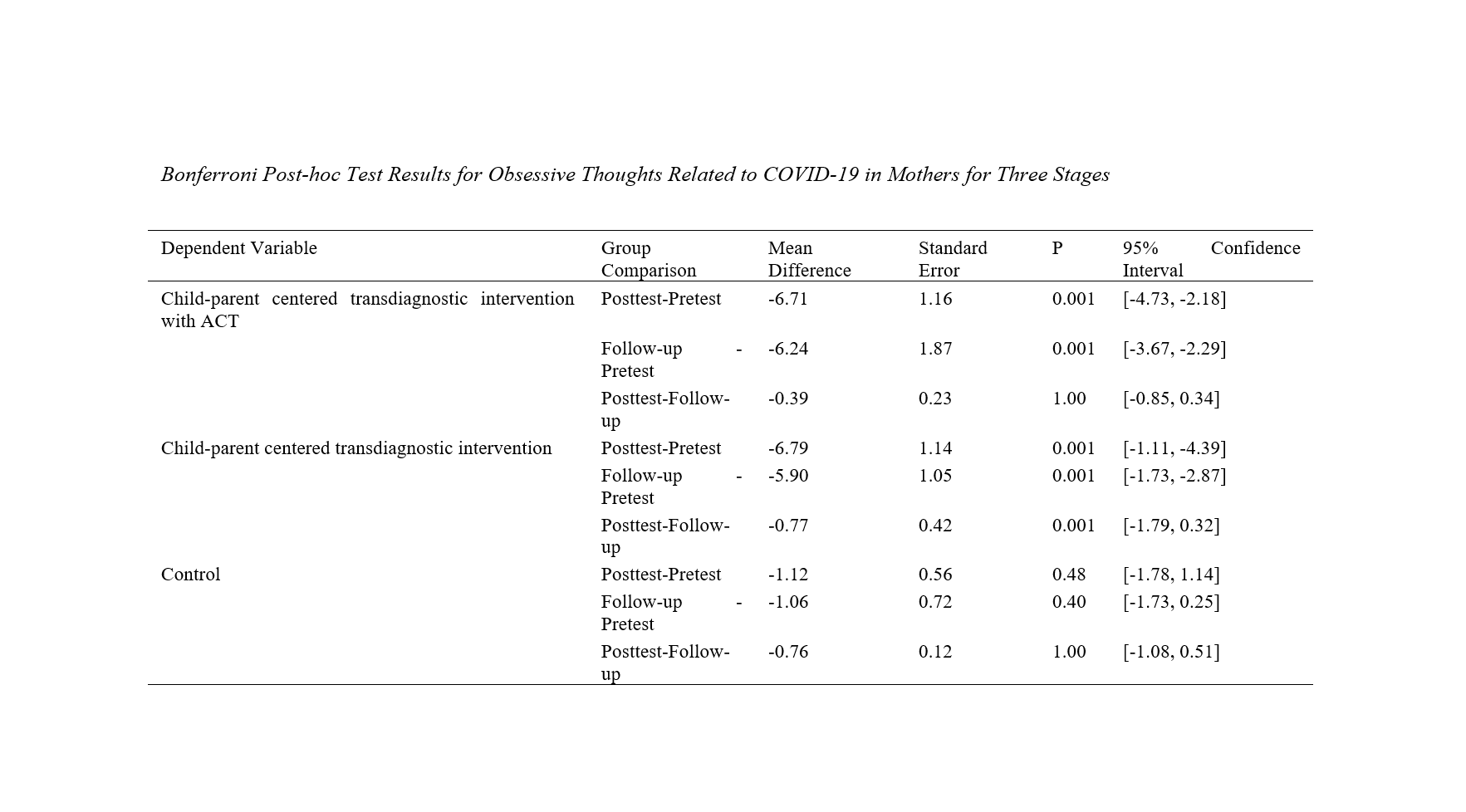Effectiveness of Transdiagnostic Child Therapy Combined with Maternal Acceptance and Commitment Intervention on Anxiety and Depression in Anxious Children and Obsessive Thoughts Related to COVID-19 in Mothers with Corona Anxiety
Keywords:
Transdiagnostic child therapy, acceptance and commitment intervention, anxiety, depression, obsessive thoughts, corona anxietyAbstract
Objective: The aim of the present study was to compare the effectiveness of transdiagnostic child therapy with and without maternal acceptance and commitment intervention on anxiety and depression in anxious children and obsessive thoughts related to COVID-19 in mothers with corona anxiety.
Methods and Materials: The method of this research was a quasi-experimental design with a pre-test-post-test (two experimental groups and one control group) along with a two-month follow-up period. The population included all anxious elementary school students in the second half of the year 2021-2022 in districts 1 and 2 of Sari city whose mothers also had corona anxiety. Transdiagnostic child-parent centered intervention combined with acceptance and commitment therapy for the parent was applied in the first group, and transdiagnostic child-parent centered intervention without acceptance and commitment therapy for the parent in the second experimental group, while the control group received no intervention. Sixty participants were selected through purposive sampling. They were then randomly assigned into 3 groups (Group 1; transdiagnostic child-parent centered intervention with parental acceptance and commitment intervention (20 participants), Group 2; transdiagnostic child-centered intervention without parental acceptance and commitment intervention (20 participants), and Group 3; as the control group (20 participants)). For data collection, depression and anxiety questionnaires were used for children, and a practical obsessive-compulsive questionnaire with COVID-19 was used for mothers. For the implementation of interventions, Ehrenreich-May et al.'s (2019) transdiagnostic intervention (12 90-minute group sessions twice a week), and Eifert et al.'s (2017) acceptance and commitment therapy (12 90-minute group sessions twice a week) were utilized. For data analysis, repeated measures ANOVA with SPSS software, version 26 was used.
Findings: The results of the repeated measures ANOVA regarding the children showed that the effectiveness of transdiagnostic child therapy combined with maternal acceptance and commitment intervention was significantly greater than transdiagnostic child therapy without acceptance and commitment intervention for the mother, in terms of anxiety and depression. Although anxiety and depression decreased in both experimental groups and were stable over time. The results of the repeated measures ANOVA regarding mothers showed that there was no significant difference in the effectiveness of transdiagnostic child therapy combined with maternal acceptance and commitment intervention with transdiagnostic child therapy without acceptance and commitment intervention for the mother regarding obsessive thoughts, although both interventions showed significant effectiveness over time.
Conclusion: Therefore, it is recommended that therapists and counselors use this treatment in conjunction with other therapeutic interventions to improve the interaction between children and parents.
Downloads

Downloads
Additional Files
Published
Issue
Section
License
Copyright (c) 2024 Pezhman Barimani (Author); Fatemeh Shahabizadeh (Corresponding Author); Qasem Ahi, Maryam Safara (Author)

This work is licensed under a Creative Commons Attribution-NonCommercial 4.0 International License.














